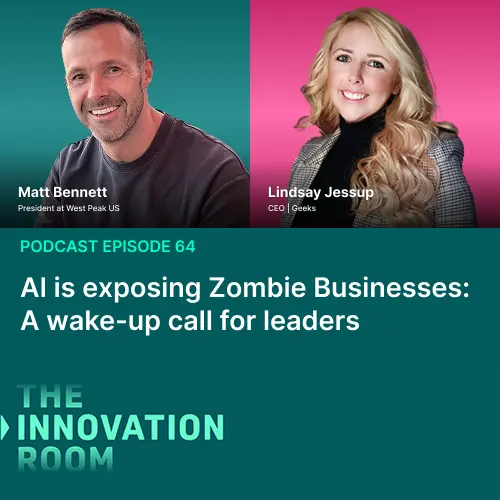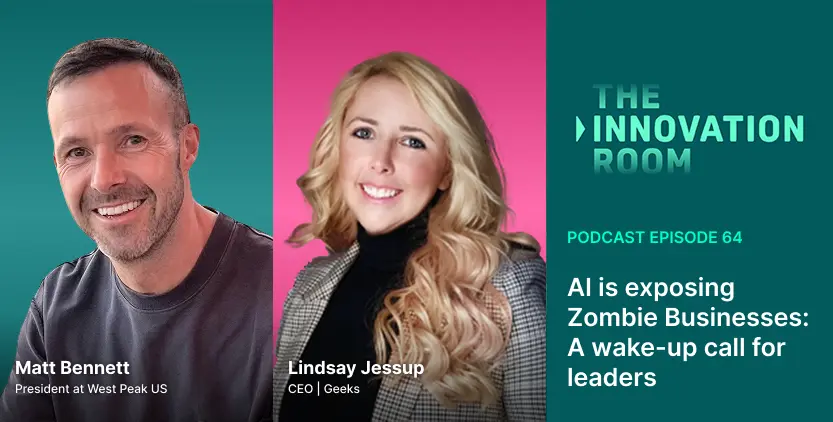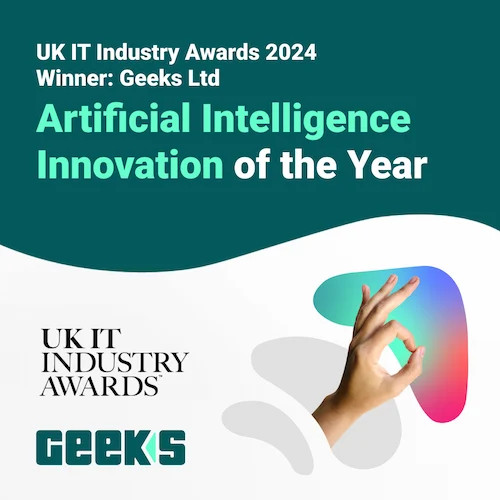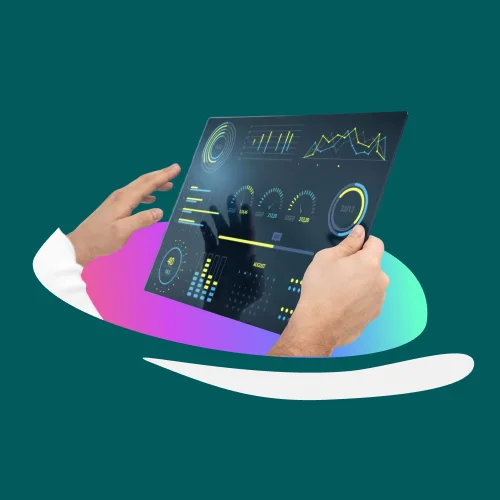
Best enterprise software solutions for custom app development in 2025
In 2025, enterprise software development is defined by intelligence, scalability, and measurable impact. Modern organisations rely on software as the foundation of digital transformation, linking data, workflows, and decision-making across every business unit. According to Grand View Research, the U.S. enterprise software market is projected to grow at a compound annual growth rate of 11.1% from 2025 to 2030, reaching US $162.74 billion by 2030. This continued growth highlights the increasing reliance on custom-built, AI-powered solutions that enhance performance, scalability, and agility across enterprises.
With AI-driven design, cloud-native engineering, and low-code tools accelerating delivery cycles, enterprises are no longer asking if they should build custom applications but how to do it better. This article explores the leading enterprise software solutions empowering that shift and guides CTOs, CIOs, and digital leaders in choosing platforms and partners that deliver adaptability, security, and scale in 2025 and beyond.
What are enterprise software solutions?
Enterprise software solutions are large-scale, multi-user platforms built to connect, automate, and optimise critical business operations. They unify processes across departments, streamline workflows, and enable real-time decision-making in complex organisational environments. Common examples include Enterprise Resource Planning (ERP) systems, Customer Relationship Management (CRM) tools, Supply Chain Management (SCM) software, Human Resource Management (HRM) platforms, and enterprise-grade data analytics systems.
Unlike traditional business software, which serves limited functions or individual users, enterprise software operates as a central digital ecosystem that supports thousands of users and integrates with multiple systems. These platforms also act as the foundation for custom application development, providing secure data infrastructure, scalability, and interoperability. As organisations move toward hyper-personalised and data-driven operations, many now build bespoke applications on top of these enterprise solutions to meet unique industry requirements, accelerate innovation, and maintain strategic flexibility.
Why enterprises are investing in custom app development in 2025
Off-the-shelf software once offered convenience, but in 2025, it rarely meets the depth and scale of enterprise needs. Today’s organisations operate in environments defined by data complexity, rapid market shifts, and evolving compliance standards. To stay competitive, enterprises are turning to custom app development, creating systems that are not only built around their operations but capable of adapting as those operations evolve. This shift is driven by a new generation of technologies that blend AI, automation, and cloud-native engineering to deliver precision, agility, and measurable ROI.
Modern enterprise priorities now extend beyond functionality. Custom software is expected to deliver resilience through strong security and governance, reduce costs through optimised cloud infrastructure, and improve productivity through intuitive user experiences. These goals are reshaping how software is designed and deployed across business functions.
AI and automation
AI is transforming enterprise applications from static tools into intelligent systems that learn from every interaction. Machine learning models now predict demand, optimise logistics, and personalise user experiences automatically, reducing human intervention and accelerating decision-making.
Integration-first design
Enterprises are moving away from siloed platforms toward integration-led ecosystems. Modern architecture connects legacy databases, cloud services, and third-party APIs, ensuring data consistency and cross-department collaboration at scale.
User-centric interfaces
Enterprise apps are no longer built for back-end efficiency alone. Modern designs focus on intuitive interfaces, real-time feedback, and role-based accessibility, helping teams work faster and make better decisions while improving overall engagement.
Key trends shaping enterprise software in 2025
The enterprise software landscape in 2025 is defined by adaptability, intelligence, and speed. As technology cycles shorten and business needs evolve faster than ever, organisations are embracing new development models that prioritise scalability, automation, and governance. Below are the key trends shaping how enterprises design and deploy custom applications this year.
1. AI-native development
AI is no longer an add-on; it is the foundation of modern enterprise systems. AI-native development integrates machine learning, natural language processing, and predictive analytics directly into application architectures. This allows systems to learn from data, automate decisions, and improve continuously. For example, predictive maintenance tools in manufacturing now detect anomalies before they occur, while AI agents in customer support resolve up to 70% of queries autonomously.
Why it matters: Embedding intelligence into the core of software enables enterprises to move from reactive operations to proactive innovation, unlocking faster insights and smarter workflows.
2. Composable architecture
Enterprises are breaking away from monolithic systems in favour of composable architectures built on microservices and APIs. This modular approach allows teams to build, test, and deploy components independently while maintaining a unified system. For instance, financial institutions now use modular APIs to integrate new payment gateways or compliance modules without disrupting the entire ecosystem.
Why it matters: Composability reduces development time, increases flexibility, and enables businesses to experiment safely with emerging technologies like AI, blockchain, and IoT.
3. Cloud-native scalability
In 2025, cloud infrastructure is no longer just about hosting, it’s about strategic scalability. Cloud-native applications leverage containers and orchestration tools such as Kubernetes to run seamlessly across public, private, and hybrid environments. Enterprises like Netflix and Spotify use this model to deploy updates globally with near-zero downtime.
Why it matters: Cloud-native scalability ensures performance consistency, resilience, and cost efficiency while allowing enterprises to deploy applications anywhere without vendor lock-in.
4. Low-code and no-code platforms
Low-code and no-code development tools are empowering non-technical teams to build custom applications quickly. These platforms provide drag-and-drop interfaces and pre-built templates for workflows, dashboards, and automations. Global adoption has surged, with Gartner predicting that 80% of new enterprise apps will be built using low-code tools by 2026.
Why it matters: By reducing development bottlenecks, low-code platforms enable faster delivery, cost savings, and a culture of innovation within departments that traditionally relied on IT support.
5. Cyber resilience and governance
With rising threats and stricter data regulations, security can no longer be an afterthought. Enterprises are embedding zero-trust frameworks, AI-driven monitoring, and automated compliance checks directly into their software development lifecycle. For example, financial services firms now use AI-powered anomaly detection to monitor transactions and prevent breaches in real time.
Why it matters: Security by design safeguards intellectual property, ensures regulatory compliance, and builds trust with customers, critical for sustaining digital growth in an AI-driven world.
The best enterprise software solutions for custom app development in 2025
In 2025, a handful of platforms continue to lead enterprise app development by combining scalability, integration, and governance. Here are the top choices driving innovation this year.
Microsoft power platform
A leader in low-code enterprise apps, Microsoft Power Platform allows teams to build and automate workflows quickly with tools like Power Apps and Power Automate. It integrates seamlessly with Office 365, Dynamics, and Azure, making it ideal for finance, HR, and operations teams that need fast deployment and reliable connectivity. However, its flexibility can be limited for more complex, multi-cloud applications.
AWS and Azure cloud ecosystems
AWS and Azure remain the backbone of enterprise software infrastructure. Both enable large-scale, AI-driven, and data-heavy applications with built-in tools for DevOps, analytics, and machine learning. Enterprises use them to power scalable web apps, automate data pipelines, and deploy global AI workloads. These ecosystems deliver strength and reliability but often require expert engineering support to avoid complexity and cost overruns.
SAP business technology platform (BTP)
SAP BTP helps modernise legacy ERP environments through integration, automation, and real-time analytics. It’s particularly suited for large organisations managing operations across multiple systems. While robust, BTP implementations can be complex, enterprises often benefit from expert partners who can align its capabilities with business goals.
Salesforce platform
Salesforce Platform is best for CRM-driven app development, enabling organisations to extend customer data and workflows through custom portals, dashboards, and AI insights with Einstein GPT. It’s ideal for service and sales ecosystems but can become restrictive for broader cross-department innovation.
Challenges of traditional enterprise platforms
Traditional enterprise platforms have long supported large organisations, but many are now showing their age in a digital-first world. Key challenges include:
-
Slow implementation cycles: Long deployment timelines delay ROI and make it difficult to respond to market changes.
-
High licensing and maintenance costs: Complex pricing structures and ongoing fees increase total cost of ownership.
-
Rigid architectures: Limited flexibility prevents teams from adapting systems to new business requirements.
-
Difficult integrations: Connecting legacy systems with modern cloud applications often leads to inefficiencies and data silos.
-
Vendor lock-in: Proprietary frameworks restrict freedom to innovate or switch technologies without heavy disruption.
-
Limited scalability: Older systems struggle to handle increased data loads or global expansion demands.
-
Dependency on external specialists: Many traditional platforms require niche expertise, adding time and cost to every update.
Enterprises facing these challenges are increasingly turning toward custom-built solutions. With deep engineering expertise and AI-enabled development practices, Geeks helps organisations replace complexity with clarity, building adaptive systems that evolve with business needs.
Choosing the right enterprise partner for custom app development
Selecting the right technology platform is only half the equation, the real differentiator lies in choosing the right partner to bring that strategy to life. A capable enterprise development partner ensures that software decisions align with long-term business goals, integrate seamlessly with existing systems, and deliver measurable outcomes across the organisation.
When evaluating potential partners, enterprises should look for a proven delivery track record, strong digital evolution frameworks and expertise in AI integration. Security, compliance, and scalability must be embedded from the start, not added later. The right consultancy should guide every stage, from discovery and architecture planning to continuous improvement and ROI measurement.
Through its Digital Due Diligence framework, DiGence®, and engineering practices, Geeks helps enterprises design, implement, and scale software systems that are data-driven, compliant, and built for growth. Each solution is engineered for long-term value, secure, adaptable and ready to evolve as the business does.
Enterprise case studies: How custom software creates measurable ROI
Real-world impact defines the success of any enterprise software. Below are three examples of how Geeks helped leading organisations achieve measurable results through custom-built solutions.
ChannelPorts
Sector: Transport & Logistics | Size: 200–500
Services: Bespoke Software Development, UX Design, Customer Portal, Systems Integration
Faced with a 3,000% surge in customs entries after Brexit, ChannelPorts partnered with Geeks to digitise their manual processes. In just six weeks, Geeks delivered CustomsPro, an automated platform for electronic shipment filing and data integration.
Result: A scalable system that increased capacity, improved accuracy, and supported traders nationwide with faster customs clearance.
Search Acumen
Sector: Legal & PropTech | Size: 200–500
Services: AI Software Development, Systems Integration, Bespoke SaaS Platform
Search Acumen worked with Geeks to develop a data-driven SaaS platform that automates property searches and consolidates information from hundreds of local authorities.
Result: Over 80% reduction in manual processing and a scalable solution that positioned them as a leading PropTech innovator.
AESSEAL®
Sector: Manufacturing | Size: 1,000–5,000
Services: Software Prototyping, UX Design, Bespoke Application Development
AESSEAL® needed a centralised platform for global test data management. Geeks built a unified application to automate testing, certification, and reporting across multiple sites.
Result: Streamlined workflows, improved visibility, and higher productivity across 230+ global locations.
Final words
The enterprise software landscape in 2025 is defined by intelligence, adaptability, and speed. Choosing the right platform is only part of the equation. Real transformation happens when technology is engineered around strategy, not the other way around.
The most successful enterprises are those that invest in solutions built for their people, processes, and long-term goals. By combining deep technical expertise with frameworks like DiGence®, Geeks helps organisations design, develop, and scale software systems that deliver measurable impact and lasting value.
Ready to build enterprise software that is smarter, faster, and future-ready?
Partner with Geeks to create custom solutions that grow with your business.









